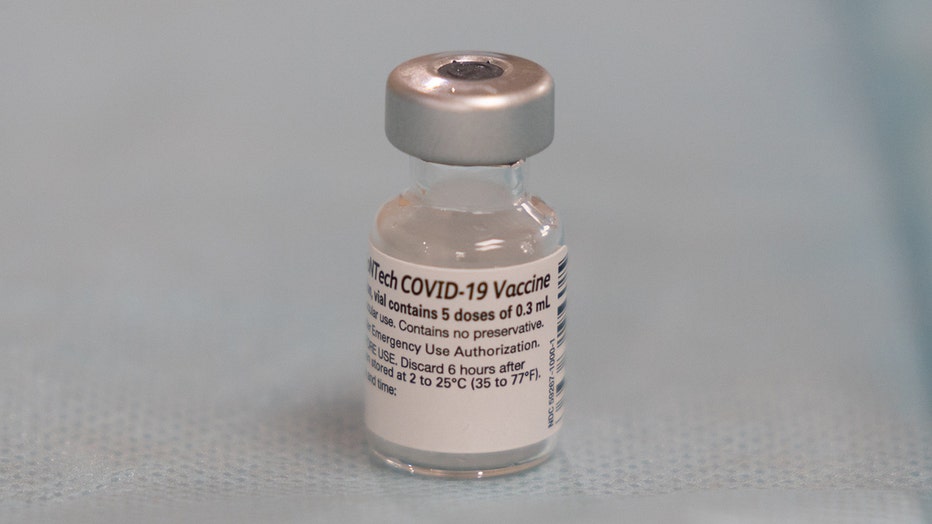Pfizer seeks OK for COVID booster for all adults as CEO predicts need for annual shot
Pfizer seeks expanded booster approval
Pfizer has asked the FDA to approve its COVID-19 vaccine booster for all adults 18 and older. It cited data showing increased immunity in people who got a third dose of the vaccine.
NEW YORK - Pfizer is submitting early results of a COVID-19 vaccine booster study in 10,000 people to U.S. regulators to make the case for the approval of boosters for anyone 18 or older just as the company's chairman and CEO indicated that an annual COVID shot will likely become the new normal.
At this time, the FDA allows boosters of both the Pfizer and Moderna vaccines for people who are 65 and older as well as adults with a high risk of severe COVID-19, either due to their underlying health conditions or the nature of their work. Regulators also allow a booster shot of the one-dose Johnson & Johnson vaccine for anyone who received a first dose.
The FDA has fully approved Pfizer's two-dose vaccine series for anyone 18 and older. The booster shot for older adults and others at higher risk is allowed under a federal emergency use authorization, or EUA.
Pfizer on Tuesday announced it has asked the FDA to amend the EUA to include all adults.
In an interview with The Atlantic Council, an international affairs think tank, Pfizer CEO Albert Bourla said that people may need to get a COVID shot every year, much like with the flu shot.
"The booster shot, the third dose, is the one that gives very, very high level of protection, higher than the originally achieved levels of protection, which was 95% with the two doses. The question is how long will it last?" Bourla said. "We know that we saw a waning of immunity six months after the second dose. We need to follow up for six, seven, eight, nine months after the booster dose."
RELATED: Pfizer asks FDA to authorize COVID-19 booster shot for all adults over age of 18
Pfizer seeks expanded booster approval
Pfizer has asked the FDA to approve its COVID-19 vaccine booster for all adults 18 and older. It cited data showing increased immunity in people who got a third dose of the vaccine.
Bourla then predicted that immunity will last about a year, based on what researchers have seen with vaccination and immunogenicity curves.
"It looks like there is a chance that this will become an annual revaccination. However, I have been surprised many times in my life with things that in science, we expect things, and they don't come exactly like that," he added. "We need to wait and see. But the likely scenario is annual revaccination."
Older Americans and other groups particularly vulnerable to the virus have had access to a third dose of the Pfizer and BioNTech vaccine since September. But the Food and Drug Administration has said it would move quickly to expand boosters to younger ages if warranted.
If the FDA authorizes Pfizer boosters for all adults, the Centers for Disease Control and Prevention then will make recommendations for how to use them.
In March 2020, the World Health Organization declared the novel coronavirus outbreak a global pandemic. Later that month, Pfizer and German immunotherapy company BioNTech partnered to develop a COVID-19 vaccine as quickly as possible.
"In those early days, it was unclear how this new virus was transmitted, or how long it would last," Pfizer said in a chronicle of its vaccine development. "But as deaths around the world mounted and life as we knew it drastically changed, one thing became apparent: the virus was spreading rapidly, and the race for a vaccine was underway."
Pfizer, which dubbed the effort "Project Light Speed," and BioNTech developed their vaccine in a record nine months. On Dec. 11, 2020, the FDA issued an Emergency Use Authorization for the Pfizer/BioNTech vaccine.
With The Associated Press.

A vial of COVD-19 vaccine. (Photo Courtesy of Pfizer/BioNTech)

